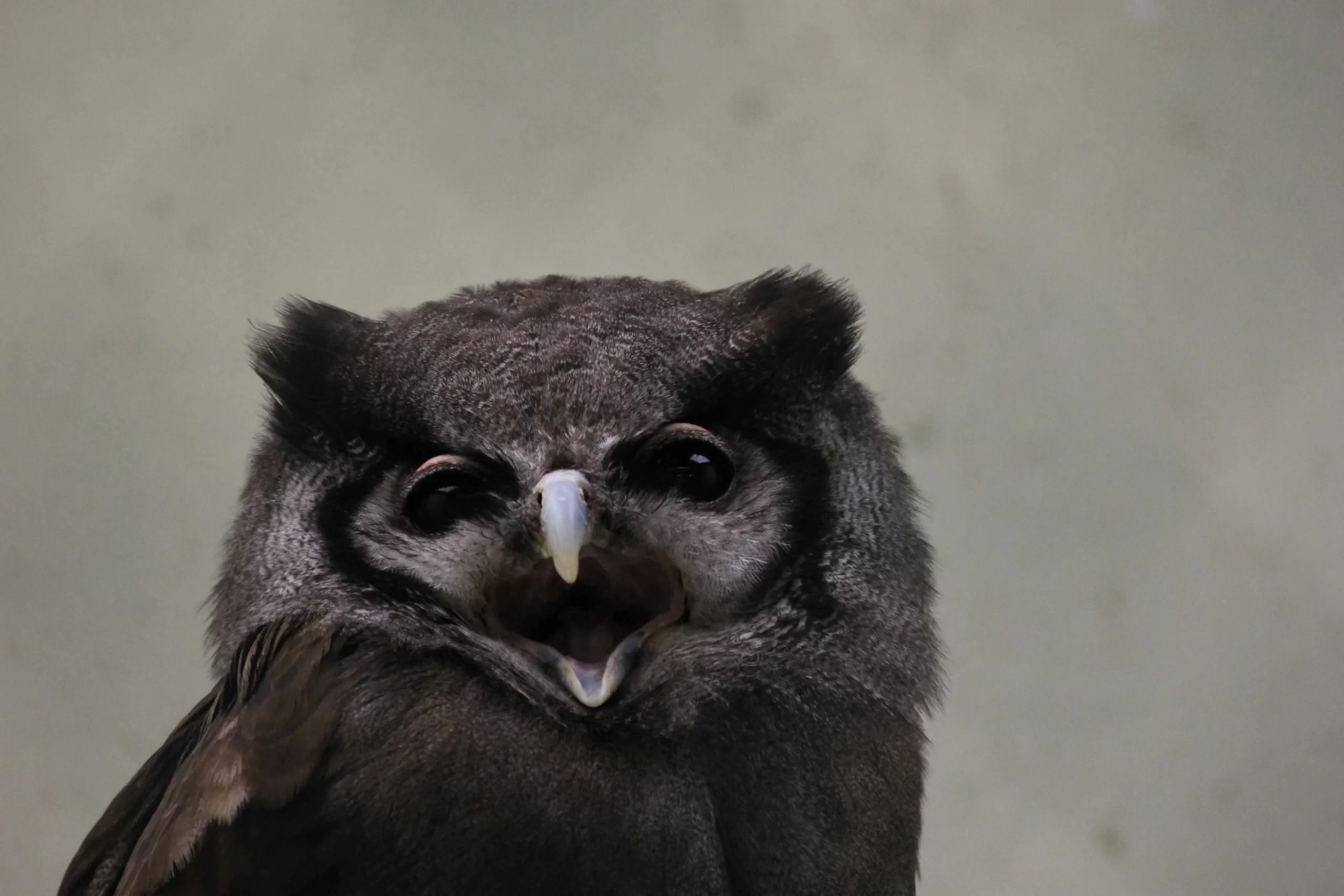Those who have spent enough time outdoors have surely heard an owl hoot. No matter if you heard this vocalization on a camping trip or in your own backyard, owl hoots are certainly memorable. However, some may be curious about the reasoning behind these noises. So, why do owls hoot at night?
If you want to know more about why owls hoot, you’ve come to the right place! I’ll discuss the various reasons why owls make noise and explain the meaning behind their sounds. Read on if you’re ready to learn about hooting owls!
Table of Contents
Why Do Owls Hoot At Night?
Most are familiar with the fact that the majority of owls do not come out during the day. Indeed, many owls are nocturnal, so, unsurprisingly, they may make noise at night. However, what do owl noises mean – why do owls hoot at night?
Owls may hoot at night for a variety of reasons, but the main reasons would be to communicate with other owls and to advertise their territory. Indeed, owls are not songbirds, so they cannot sing to attract mates. Therefore, owls use hoots to send signals to mates or warn other owls that they’re trespassing.
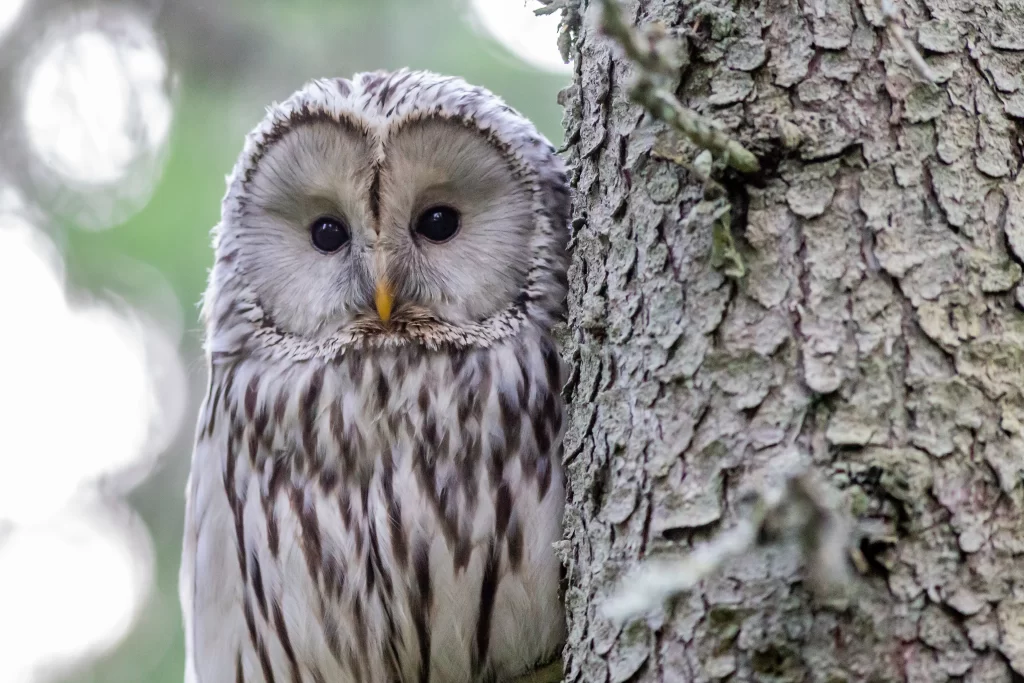
Owls may hoot at night during any time of the year, although they typically hoot more during the breeding season – a time that may begin as early as the start of winter. The night is the prime time for owls to hoot, but this is unsurprising because we know that owls are most active at this time. Yes, some owls exclusively hoot at night, waiting for the cover of darkness to produce vocalizations. However, some owls are willing to sound off at other times.
Now that we know more about the question, “Why do owls hoot at night?” let’s learn about why owls may vocalize during broad daylight. Why do owls hoot during the day?
Why Do Owls Hoot During The Day?
Those who hear what they believe to be an owl hooting during the day may be confused about what they’re listening to. Is such a phenomenon possible – do owls hoot during the day?
Yes, although it is surprising to some, some owls will sound off during the day. Barred Owls are a good example of this – although they are a nocturnal species, they regularly hoot during the day. Moreover, some owl diurnal owl species may hoot during the day. Okay, so we know that owl hooting does occur during the day, but this doesn’t address the reasoning. Why do owls hoot during the day?
Well, owls don’t often feel the need to advertise their territories during the day, so this is not often a reason for vocalizing during the day. Instead, owls vocalize during the day to warn other owls of danger or check in on their counterparts.
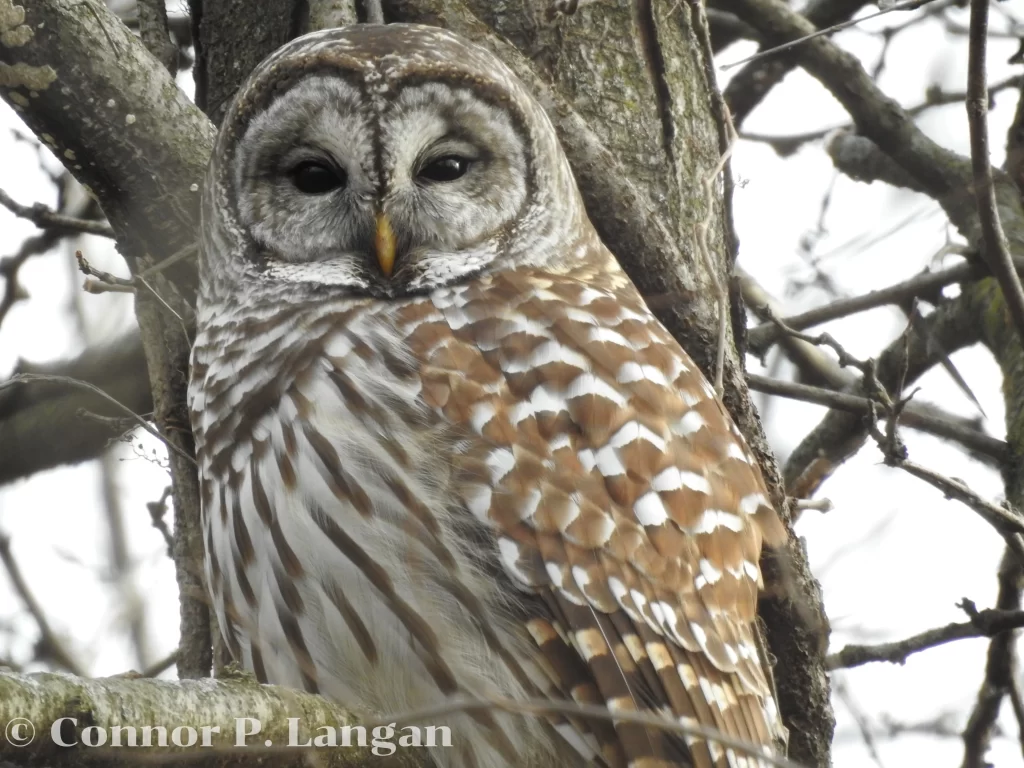
Why Do Owls Hoot In The Morning?
Dawn is a time in which owls seem to hoot more compared to other times of day, but is there a reason for this behavior? Why do owls hoot in the morning more than at other times of the day?
Well, some owl species are not primarily active during the day or the night, instead being crepuscular. Crepuscular animals are most active at dawn and dusk. Species such as Short-eared Owls are good examples of crepuscular owls, while other owls such as Northern Pygmy-Owls readily vocalize during the early morning.
If you’re wondering why do owls hoot at each other in the mornings, know that most morning owl hoots are related to territory proclamations. Although owls that hoot in the morning may be trying to warn of danger, this is not typically the case. Hearing an owl hoot during the morning is more common than hearing one hoot in the middle of the day.
Why Do Owls Hoot 3 Times?
Some may be perplexed if they hear an owl hoot a certain number of times. Indeed, superstitious folks may be wary about the potential implications of such patterns. So, what does it mean when owls hoot in such patterns? More specifically, why do owls hoot 3 times?
Some may be worried if they hear an owl hoot three times in the darkness. Is this some type of bad omen – should people be worried if they hear owls hoot three times?
Although some may argue with my position, I do not believe that those who hear an owl hoot three times are cursed or otherwise afflicted with bad luck. Owl hooting is commonly regarded as a sign of bad things to come, but there’s no scientific research to back up such claims.
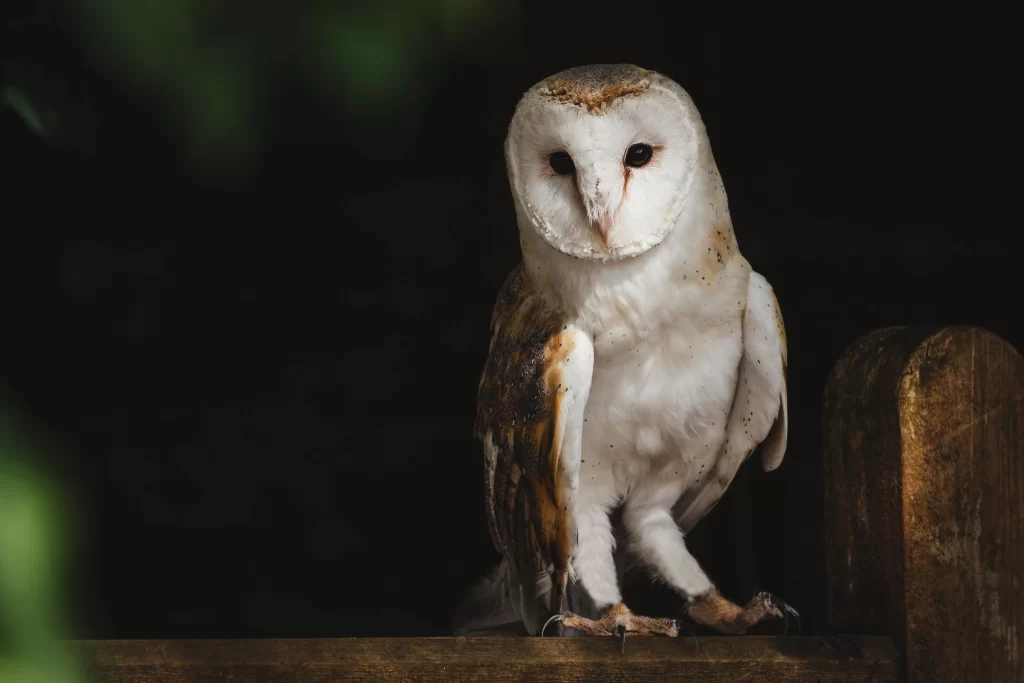
It can–certainly–be strange and unsettling to hear an owl hoot three times and then stop. However, there are plenty of reasons that they may do this. For instance, a pair of owls may call back and forth to produce a series of three vocalizations, or an owl could get startled by a predator or a person in the middle of its vocalization.
Bottom line: death is not lurking around the corner for you if you hear an owl hoot three times. Instead, try to enjoy the wonderful sound of hooting owls!
Why Do Owls Screech At Night?
Think back to the reasons that I offered to the question, “Why do owls hoot at night?”. Hooting is one thing, but screeching is another. Screeching is a thing that hawks are known to do, but did you know that owls also screech? It’s true! But why do owls screech at night?
Hearing an owl screech at night can be a jarring experience, but once you get over the initial shock, you may want to know more about screeching owls. The first thing that I should mention about owls is that some species naturally make screeching sounds as their primary means of communication. Yes, not all owls hoot. In fact, there are plenty of owl species that make noises that are more similar to screeching than hooting. Barn Owls are a good example of this.
Additionally, most owls have various calls in addition to their primary hoot. Indeed, species like Northern Saw-whet Owls have an assortment of screech-like calls. These calls are not used to advertise territories, rather, they are typically used to communicate with other owls. For instance, owls may screech when they’re agitated or excited about something.
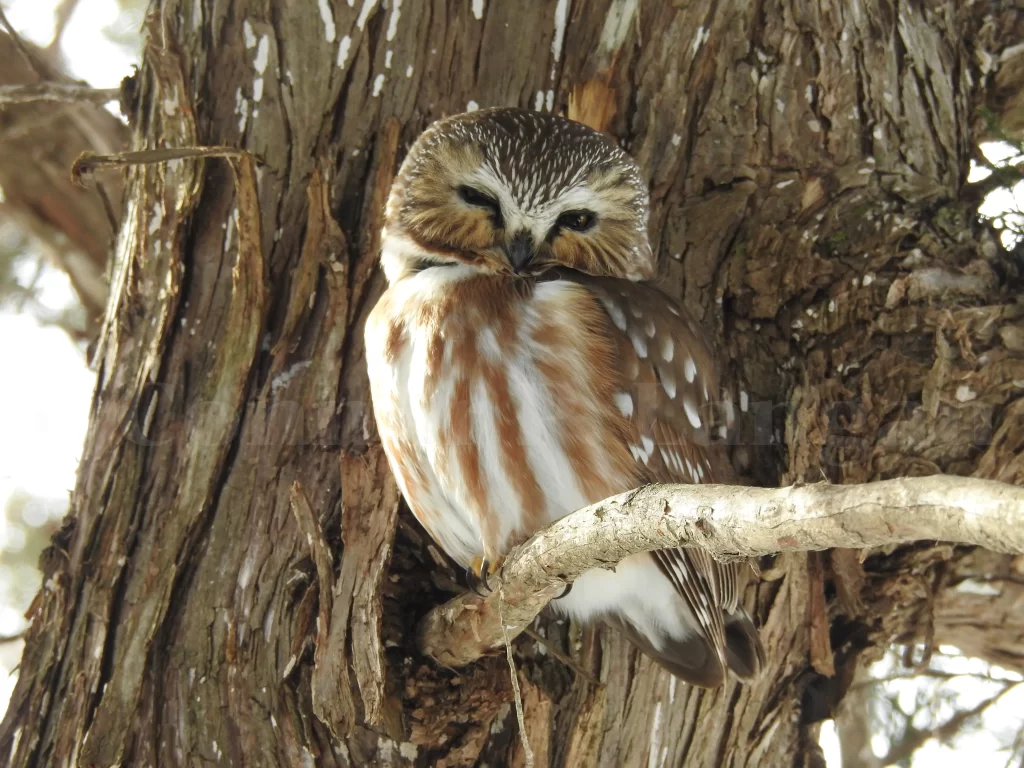
Why Do Owls Click Their Beaks?
Some are aware that owls may occasionally make clicking noises with their bills. This is curious behavior, and ornithologists are not certain why owls make these clicking sounds. However, there are some theories about this behavior. So, why do owls click their beaks?
Ornithologists have investigated if owl beak clicking may be related to their foraging activities, but studies have found that beak clicking does not assist with locating prey. This means that owl beak clicking must be used for communication between owls.
Owl beak clicking will not be as obvious as other owl vocalizations, as the sound does not travel as far. If you are close enough to hear an owl click its bill, then it could even be scolding you. However, it’s more likely to be communicating with another owl. Some paired owls may bill click when they want one of their mates to bring them food – this behavior is especially common during the nesting season.

